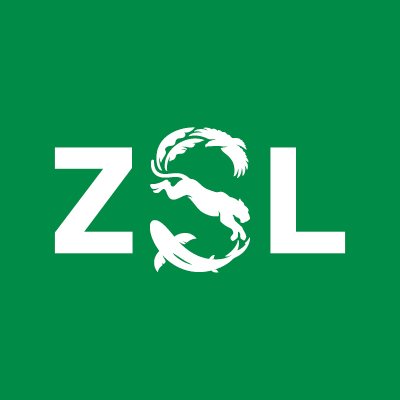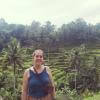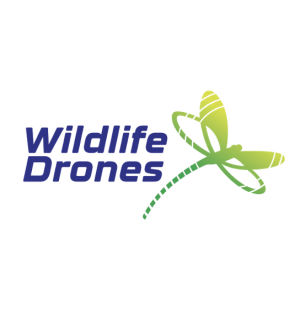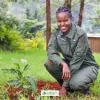There are educators everywhere working to teach the next generation of sustainability minded students. Whether in formal settings (K-12, undergraduate, graduate) settings or informally as science communication now it is more important than ever to work towards advancing Conservation Tech education.
The United Nations released the 17 Sustainable Development Goals (SDGs) which have served as a framework for educators in this space. Educating with a sustainable focus is a challenge whether you are interested in engineering, public policy, AI, or behavioral biology and we hope that this group will help you grow and exchange your ideas with other current and future educators.
This WILDLABS group has been set up by folks who are working to develop education toolkits, platforms, modules, and more in the conservation space. These tools can be at any level of development.
We hope you will become part of this group to share case studies, exchange ideas, and work towards developing a curriculum for future conservation tool crafters.
Current Examples of Conservation Tech Education Resources:
CV4Ecology Summer Workshop:
- Website for Summer Camp Information,
- Applications Due December 15th for next cohort
- 2022 Material including Syllabus, Lectures, Invited Talks, Final Presentations
Tech Tutors from WILDLABS
- TechTutors Season 1, WILDLABS
- TechTutors Season 2, WILDLABS
- TechTutors Season 3, WILDLABS
Want to know more about Conservation Technology education resources? Make sure to join the conversation in the WILDLABS Conservation Tech Training and Education group.
Additional Conservation Tech Courses:
- Tech4Wildlife @ Georgia Tech – Interdisciplinary and Project Based course on Conservation Technology
- MSc Wildlife Conservation Tech – Liverpool John Moores University Program
Group curators
- @StreamingScience
- | he/him/his
Georgia Institute of Technology
Andrew’s always looking to find new interdisciplinary teams in the conservation tech space. He is a postdoctoral researcher at Max Planck Institute, who completed his PhD at Georgia Tech in 2022. His interests including conservation tech education and engineering work.



- 0 Resources
- 14 Discussions
- 3 Groups
- @sstathat
- | she/her
Suzanne’s drive to protect the natural world led her to graduate school at Caltech. She is a Computing and Mathematical Sciences PhD student, advised by Pietro Perona. Her interests include leveraging machine learning and computer vision techniques to solve ecological problems.



- 0 Resources
- 3 Discussions
- 7 Groups
- @cshriver
- | she/her/hers
Georgia Institute of Technology
PhD student in Quantitative Biosciences
- 0 Resources
- 0 Discussions
- 3 Groups
- @nabilla.nuril
- | She/Her
Incoming student of UCL MSc Ecology and Data Science
- 0 Resources
- 0 Discussions
- 11 Groups
- @Hansa
- | He/Him
- 0 Resources
- 0 Discussions
- 6 Groups
- @ATM
- | HE
I studied Wildlife and Ecotourism Management in University of Ìbàdàn, Nigeria, I'm a front-end developer. I am interested in conservation technology
- 0 Resources
- 5 Discussions
- 11 Groups
- @valeria
- | she/her
Studio Pixel
AI integration architect, AI product manager. I've built the front-end of this website 😁
- 0 Resources
- 3 Discussions
- 13 Groups
- @Harperinos
- | he/him
'Diploma of Conservation & Ecosystem Management' student at TAFE NSW Australia.
- 0 Resources
- 2 Discussions
- 6 Groups
- @shana
- | she/her
I am a Senior Research Scientist in the Department of Human Centered Design and Engineering at the University of Washington. I am a researcher with the eDNA Collaborative and Co-Director of the Pacific Marine Energy Center.
- 1 Resources
- 1 Discussions
- 7 Groups
Heading up comms for a conservation agency based in the United Arab Emirates
- 0 Resources
- 0 Discussions
- 6 Groups
- @amtsongo
- | Mr
African Parks
African Parks/D.R. Congo
- 0 Resources
- 1 Discussions
- 5 Groups



- 7 Resources
- 2 Discussions
- 5 Groups
Neuroscientist & engineer transitioning to conservation tech. I have experience working with large imaging datasets, pose estimation and positional tracking, and machine learning. Looking to get involved with GIS, remote sensing, and AI for conservation.
- 0 Resources
- 0 Discussions
- 17 Groups
We empower conservationists to protect and restore nature everywhere.

- 5 Resources
- 0 Discussions
- 1 Groups
- @bioNathan
- | he/him
Innovation Design Engineer studying at MSc + MA level. Previously a Robotics engineer with specialisms in remote sensing, control systems & electronics design. Transitioning to ecological contexts. I use bioinspiration to inform tech design, both product & infrastructure.
- 0 Resources
- 0 Discussions
- 8 Groups
Careers
The Smithsonian National Zoo & Conservation Biology Institute is seeking a Program Manager to help coordinate multiple organizations in an effort to integrate movement data & camera trap data with global...
22 April 2024
Watch our interview with pioneering young Tanzanian vulture researcher Vainess Laizer! Her research investigating the breeding success of white-backed vultures in the western corridor of the Serengeti ecosystem using...
16 April 2024
Space for Giants is looking for a Conservation Science Intern to help support the Conservation Science team in managing data flow, storage, and analysis to maximize the efficiency of monitoring and evaluating impact.
9 April 2024
Catch up on the conservation tech discussions and events that happened during World Wildlife Day 2024!
7 March 2024
Do you know anyone interested in this position? Let them know by sharing widely.
27 February 2024
Careers
The SMART Partnership is hiring a Program Director to oversee all aspects of the partnership's operations
21 February 2024
We invite applications for the third Computer Vision for Ecology (CV4E) workshop, a three-week hands-on intensive course in CV targeted at graduate students, postdocs, early faculty, and junior researchers in Ecology...
12 February 2024
The Conservation Technology Laboratory within the Population Sustainability department is seeking two fellows for summer 2024.
9 January 2024
The MS-CC is searching for an enthusiastic Program Manager who can collaborate with faculty, staff, and students at HBCUs and TCUs to successfully deliver communications and program activities driven by the primary goal...
13 December 2023
With the support of Women in Conservation Technology (Kenya) and Arm, I had a chance to work with Kijabe Environment Volunteers in Kikuyu Escarpment Forest. This was an opportunity to channel my passion for the...
1 December 2023
Pathways to the resilience of agro-pastoral communities in Kenya- PhD Position at NTU
1 December 2023
Careers
NSERC-CREATE graduate programs (LEADS & LINK-D) on the theme of scientific leadership for global sustainability in the digital age.
27 November 2023
May 2024
June 2024
event
July 2024
event
October 2024
February 2024
January 2024
December 2023
event
event
| Description | Activity | Replies | Groups | Updated |
|---|---|---|---|---|
| Thank you Robyn. Sure I will send more information to your email |
|
Citizen Science, Acoustics, Conservation Tech Training and Education, Human-Wildlife Conflict | 6 hours 47 minutes ago | |
| I got assistance. super grateful! |
|
Climate Change, Community Base, East Africa Community, Conservation Tech Training and Education | 5 days 21 hours ago | |
| Can't beat Dan's list! I would just add that if you're interested in broader protected area management, platforms like EarthRanger and SMART are amazing, and can integrate... |
|
Data management and processing tools, Camera Traps, Conservation Tech Training and Education | 1 week ago | |
| Sounds good. Just sent you a private message. |
|
Climate Change, Conservation Tech Training and Education, Sensors | 1 week 3 days ago | |
| This is so cool @Mauricio_Akmentins - congrats and look forward to seeing your project evolve! |
|
Acoustics, Biologging, Climate Change, Conservation Tech Training and Education, Data management and processing tools, Emerging Tech, Open Source Solutions, Protected Area Management Tools, Sensors, Software and Mobile Apps | 2 weeks 3 days ago | |
| Hi @Alasdair Great to hear from you! Thanks for the comment and for those very useful links (very interesting). And for letting @Rob_Appleby know. I can't wait to hear... |
|
Emerging Tech, Camera Traps, Conservation Tech Training and Education | 3 weeks 4 days ago | |
| Hi all,We've extended the Computer Vision for Ecology (CV4E) 2025 winter workshop application deadline to Monday, April 1st.More info on... |
|
Conservation Tech Training and Education | 3 weeks 5 days ago | |
| We could always use more contributors in open source projects. In most open source companies Red Hat, Anaconda, Red Hat and Mozilla, people often ended up getting hired largely... |
|
Acoustics, AI for Conservation, Conservation Tech Training and Education, Early Career, Marine Conservation | 4 weeks 2 days ago | |
| I actually will be in Panama for an internship during June-July in the Azuero peninsula!! What organization are you both involved in? |
|
Conservation Tech Training and Education, Early Career, Women in Conservation Tech Programme (WiCT) | 1 month ago | |
| Thank you Carly, I will definitely take a look. |
|
Acoustics, Biologging, Climate Change, Conservation Tech Training and Education, Data management and processing tools, Remote Sensing & GIS, Software and Mobile Apps | 1 month ago | |
| Hi everyone! My name is Leah Govia and I am a PhD candidate at the University of Guelph, Canada. My research explores what people... |
|
Ethics of Conservation Tech, Conservation Tech Training and Education, AI for Conservation | 2 months 1 week ago | |
| Hi Amit,The most important thing is that the livestock owners contact you as soon as possible after finding the carcass. We commonly do two things if they contact us on the same... |
|
Camera Traps, AI for Conservation, Conservation Tech Training and Education, Early Career, Human-Wildlife Conflict, Protected Area Management Tools | 2 months 2 weeks ago |
Download Now: A Best Practice Guide to Satellite Technologies for Tracking Wildlife
 Zoological Society of London
Zoological Society of London
17 February 2023 10:29am
20 February 2023 9:34am
Suggestions for user research/co-design methodologies
9 November 2022 11:32am
31 January 2023 3:01pm
Hi,
I'm the UX researcher at Rainforest Connection (RFCx). I use research methods such as interviews, usability testing, and card sorting to understand scientists' pain points and needs while using the bioacoustic monitoring platform, Arbimon.
In terms of tools, I use Figjam for brainstorming and mapping, Notion for a research repository, Zoom for interviews, and Figma for prototyping. I'm exploring how to use ChatGPT to speed up my process too! I use it to draft recruitment emails, summarize transcripts etc. I try to use tools that are either low-cost or that RFCx already has subscriptions of.
Since I'm a UX team of one, I also partner with University student groups/practicum courses to let UX students take on some of our projects.
Feel free to reach out; I'm always happy to chat.
10 February 2023 1:06pm
Hi @Sicily_Fiennes
Apologies for the very late response to this thread, are you still looking for advice on user research and co-creation methodologies? I see there is a lot of support here on tools already ;-)
I would recommend running some sessions with low fidelity prototypes as early as possible, definitely before investing in any development! You can do this with a variety of tools, but paper prototypes can also be great if you are trying to compare very different concepts. You can use sketches to run more of a co-creation session, so that you encourage your users to define the data insights that they need explicitly and explore together different ways of visualizing & interacting with the information.
I normally do 1-1 interviews to define needs and identify potential barriers, before prototyping. But, you might be further ahead in the design process by now.
If you still need some advice on defining the key use cases or the data visualization with users, I would be happy to offer a quick chat over zoom on how to go about it.
I am an independent service designer / user researcher with 14 years of experience in the tech industry, based in Europe :-)
Hope this helps!
Yanna
14 February 2023 1:21am
Hi @Sicily_Fiennes,
Over the past several years, I have explored how to design engaging and useful tools for the exploration of audio recording to locate calls of a particular bird species (i.e. Eastern bristlebirds). I worked to understand the practices of a species recovery team, as well as their experiences trialling audio recorders and analysis. Additionally, I explored knowledge of birders and broader audiences, and how this relates to them making sense of audio recordings and broader nature media (e.g. distribution maps and photographs of birds). My methods to understand these included semistructured interviews, artifact exploration (very low fidelity prototyping), and ethnographically inspired participant-observer fieldwork. I also took some inspiration from design research approaches such as contextual inquiry, cultural/technical probes, and more. My background prior to being a design researcher was in ecology, conservation, and environmental education, so I drew from that expertise to understand a little-known bird species and the role of technology in supporting people in becoming familiar with it. Most of my work was positioned within the field of Interaction Design, publishing via Human-Computer Interaction, Designing Interactive Systems, and Computer Supported Cooperative Work outlets (i.e. rather than UX/UI). If interested in knowing more, perhaps have a look at papers I was the first author on that are listed here, and a few videos here. My research highlights the importance of understanding the situation, knowledge, experiences, and needs of different groups of people to design enticing and useful technologies that foster learning, cooperation, and integration into existing practices. In my experience, people are sometimes compelled to be more open and creative when not interacting with technologies that can be perceived as expensive and polished products.
How to conduct rapid eligibility assessments for forest carbon projects using geospatial data
3 February 2023 3:32pm
Consultancy opportunity: Wildlife monitoring specialist
31 January 2023 11:26am
Gender Equality in Conservation
30 January 2023 10:27am
Solar panels in the tropics
26 January 2023 12:28am
27 January 2023 1:23pm
Hi Tom,
I'm with Akiba, you have to test. A collaborator has deployed solar-augmented kit in secondary jungle and some of them got enough light, and others didn't, so it can work. The open circuit voltage of solar panels doesn't change a whole lot in dim light, but the current drops drastically. So you would choose an oversize panel of the same voltage (or a bit higher).
Thanks
27 January 2023 3:56pm
I've been intrigued by this topic. Thinking about ways you could use drones or some kind of launcher to deploy panels above the canopy. Sadly I live in the great white north so I have no way of testing any concepts. Maybe even some kind of solar balloon that could float above the canopy. Interesting design problem.
30 January 2023 10:10am
Hey Tom,
Since the output is dependent on a couple of factors such as the solar irradiance of the place, shading from the canopy, the type of solar panels (mono, poly or amorphous) and orientation of the panels, etc, I'd suggest you use a software to simulate the different parameters to get an almost accurate estimation of the output. You can try PVsyst- it has a free month trial (I haven't used it before but I hear it's great) or any other PV software :)
AI for Forest Elephants Challenge
25 January 2023 3:34pm
Advanced Field School in Computational Ecology
25 January 2023 2:54pm
Firetail Fellowships
19 January 2023 12:11pm
I'm a software engineer/data scientist at Schäuffelhut Berger. We're developing Firetail a software for GPS and acceleration visualization and behavioral annotation.
We have just launched our Firetail Fellowship Program which may be a great way to get access to a full Firetail license for your student project. Let me know if you have questions or comments on this!
Survey on research culture and sharing - please complete and share!
17 January 2023 5:23pm
Interview for Technologies in Conservation
24 November 2022 10:07am
16 January 2023 2:42pm
I'd be happy to chat with you if you wanted! My expertise is within passive acoustic monitoring particularly. The Conservation Tech Directory might be useful for you in identifying relevant actors within the space.
16 January 2023 5:16pm
Happy to contribute [email protected]
17 January 2023 5:12pm
My original background is in ecology and conservation, and am now in the elected leadership of the Gathering for Open Science Hardware which convenes researchers developing open source tech for science. I am not working on a specific piece of technology right now, but am happy to contribute some higher-level views for your interview if that helps.
Introduction to CT Textbook
22 November 2022 10:43am
5 December 2022 3:00pm
Hi Andrew,
Great idea. It would be cool if the text uses multiple types of media. There is a new recent example of an online text for Google Earth Engine: Cloud-Based Remote Sensing with Google Earth Engine: Fundamentals and Applications that is very nicely done with links to code, exercises, and written by multiple authors that could partially serve as guidance for your text.
Best,
Vance
9 December 2022 11:45am
yes this is an excellent point. I love what the WILDLABS group did with the state of conservation tech report. Thanks for the example.
16 January 2023 2:51pm
This would be awesome Andrew! Happy to help with some organization of this/identifying potential chapter authors.
I'm sure you know about this already, but there is also this book from Wich & Piel: https://www.amazon.com/Conservation-Technology-Serge-Wich/dp/0198850255
Conservation Tech Course Syllabus
27 December 2022 10:09pm
4 January 2023 10:46am
Kindly share
8 January 2023 7:52pm
13 January 2023 12:12pm
Thank you for sharing Andrew!
WEBINAR: Earth, Wind & Fire: Amphibian Response to Wildfires, Windfarms, & More
11 January 2023 5:59pm
Education Paper on Computer Vision for Ecology
9 January 2023 5:30am
Job: maker / workshop technician
5 January 2023 10:53am
Conservation Technology Textbooks
2 January 2023 9:21pm
San Diego Zoo needs Summer Undergraduates!!
19 December 2022 1:58pm
Upcoming PAM & R Ocean Science Courses
16 December 2022 3:27pm
ONLINE TRAINING: Project Planning for Wildlife Conservation
15 December 2022 7:11pm
CV4Ecology 2023 Applications
1 November 2022 8:01pm
3 November 2022 7:13pm
Hey Sara,
Thanks again for the session today--it was super helpful!
I have access to a pretty large network of camera trappers, and I'm currently surveying them to see who might be willing to share data with me. That being said, I can likely get data-sharing agreements with each of these agencies sorted out before the application deadline, but may not have the data in-hand by this time due to a lack of resources for transferring such large amounts of data.
I've used Azure Storage Explorer before to rapidly transfer large datasets like this, so I think it might be easier to compile all data in one location once we have access to the VMs. Would it be acceptable to apply with the signed data-sharing agreements in mind, and with the intent of organizing all of the data once we acquire access to the computing resources?
4 November 2022 6:02pm
Yes, that's definitely ok! You should just outline your larger plan and where you are at in the process in your application. However, the compute resources are intended to be used for model training and won't be available too far in advance of the school (or at least I can't guarantee they will be) , so you would need to make a plan for pre-summer workshop data storage, wrangling, and curation to get the data ready to train models on. Let me know if you're having issues with that and I can try to help brainstorm.
9 December 2022 8:23pm
Quick reminder that the deadline for applications is just shy of a week away.
This workshop is particularly geared to teach ecologists computer vision tools to apply to their research.
Tired of trying to manually count how many animals are in your images? Tired of listening to audio files to classify/detect species? Looking to clean and manage your data so that you can more easily access and analyze it? We're happy and eager to help you apply computer vision tools to try to help with these (and more!) tasks!
More info:
Feel free to comment here or message me directly if you have any questions!
PhD - Sensory ecology of vespine wasps
8 December 2022 12:47pm
Catch Up with The Variety Hour: November 2022
22 September 2022 2:12pm


































































17 February 2023 11:34am